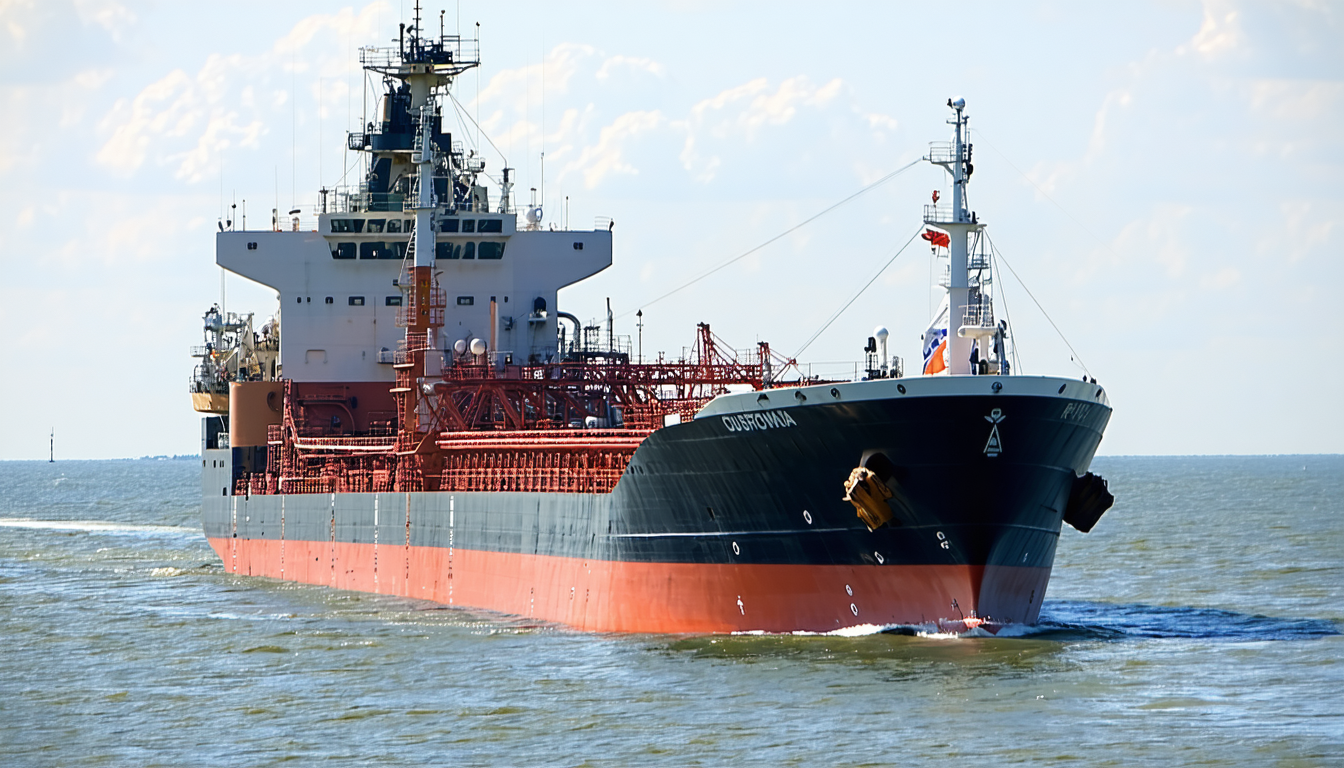The United Kingdom has imposed sweeping new sanctions targeting 135 oil tankers, each with a capacity exceeding one ton, in a decisive move to disrupt Russia’s so-called “shadow fleet.” Announced on July 21, 2025, the measures aim to curb illicit shipments of Russian oil and petroleum products that have evaded existing international restrictions. The crackdown comes as part of broader efforts by the UK government to reinforce compliance with global sanctions and protect the integrity of energy markets.
Major Expansion in Ton-Based Enforcement
The latest round of sanctions specifically targets vessels responsible for transporting an estimated $24 billion worth of cargo since early 2022. These ships—each classified by their gross tonnage—have played a central role in circumventing price caps and embargoes imposed after Russia’s invasion of Ukraine.
According to government officials, this action marks one of the largest coordinated maritime enforcement operations undertaken by the UK. “By focusing on vessels above a certain ton threshold, we are closing loopholes that allowed sanctioned goods to reach global markets,” said an official from the Department for Transport.
Industry experts note that targeting ships based on their tonnage is both strategic and effective. “Sanctioning tankers over one ton ensures coverage across most commercial-scale oil transport operations,” explained maritime analyst Sarah Thompson. “It sends a clear message: attempts at evasion will be met with robust legal consequences.”
Impact on Global Shipping and Energy Markets
The immediate effect has been felt across shipping lanes connecting Russia with Asia, Africa, and parts of Europe still reliant on seaborne crude imports. Many flagged vessels now face insurance cancellations, port entry bans within allied countries—including EU member states—and asset freezes.
Shipping companies operating these large-ton tankers must now navigate heightened scrutiny from regulators and financial institutions alike:
- Insurers are reassessing risk exposure for fleets previously engaged in sanctioned trades.
- Ports are implementing stricter checks based on vessel size (tonnage) data.
- Charter rates for compliant tankers have surged due to reduced available capacity.
Market data shows volatility in crude prices following news of the crackdown. While Brent crude remains stable at $68.87 per barrel as of July 21st, analysts warn that further disruptions could tighten supply chains if additional nations adopt similar measures focused on vessel tonnage.
Stakeholder Reactions: Industry Voices Concerns
Reactions among stakeholders have been mixed but largely supportive within regulatory circles:
- UK Government: Officials emphasize national security interests and alignment with international partners.
- Shipping Industry: Some operators express concern about collateral impacts on legitimate trade flows involving high-ton vessels not linked to Russian exports.
- Energy Traders: Market participants anticipate short-term logistical challenges but expect long-term benefits from increased transparency.
“While these sanctions may cause temporary dislocation in tanker availability above certain tons,” noted John Evans from Lloyd’s Register Group, “they ultimately strengthen market integrity by deterring illegal activity.”
Environmental groups also highlight potential secondary benefits if reduced shadow fleet activity leads to fewer unregulated voyages—a frequent source of spills or safety violations due to lax oversight standards among sanctioned operators.
Broader Significance: Setting Precedents for Maritime Law
This move sets an important precedent for future enforcement actions worldwide. By leveraging gross ton metrics as a primary criterion for sanction eligibility rather than solely relying on ownership or flag state registries:
- Authorities can more easily identify high-risk assets using standardized shipping databases.
- Legal frameworks gain clarity when defining which vessels fall under specific restrictions based purely on measurable characteristics like tons carried or registered weight.
Legal scholars suggest this approach could become standard practice amid rising geopolitical tensions affecting global trade routes—from energy commodities like oil (measured per metric ton) through bulk agricultural shipments subject to export controls elsewhere.
Looking Ahead: Possible Developments
As enforcement unfolds over coming months:
- Additional allied countries may join Britain’s initiative by adopting similar thresholds tied directly to ship size (tons).
- The shadow fleet may attempt further adaptation—such as splitting cargoes into smaller lots below sanctionable limits—but authorities remain vigilant against such tactics.
- Ongoing monitoring will assess whether targeted interventions at specific tons effectively reduce illicit flows without unduly hampering lawful commerce or driving up costs for consumers worldwide.
In summary, Britain’s latest action underscores its commitment both to upholding international law and safeguarding critical infrastructure against circumvention schemes exploiting gaps related specifically to vessel size measured in tons—a technical detail now central in shaping twenty-first-century maritime policy decisions across Europe and beyond.






